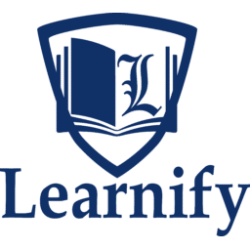Introduction:
Effective project management is critical to ensuring the success of complex and high-stakes projects. This 5-day course will introduce advanced project management techniques, tools, and strategies, focusing on optimizing project delivery, improving team collaboration, and managing risks and resources efficiently. With a strong emphasis on practical applications and case studies, participants will gain deeper insights into project planning, execution, and monitoring, learning how to handle complex projects in dynamic environments, ensure stakeholder alignment, and navigate challenges that arise throughout the project lifecycle.
Objectives:
By the end of this course, participants will:
- Gain advanced knowledge of project management methodologies and best practices.
- Master advanced project planning and scheduling techniques.
- Learn effective methods for managing project risks, resources, and budgets.
- Understand how to optimize project performance through monitoring and control techniques.
- Be equipped to lead high-performing teams and manage stakeholder expectations.
- Explore modern trends and tools in project management, such as Agile, Lean, and digital tools.
- Develop a comprehensive project management strategy for complex projects.
Who Should Attend:
This course is designed for experienced project managers, team leaders, and professionals seeking to enhance their project management skills and expertise, including:
- Senior Project Managers and Directors
- Program Managers
- Project Coordinators and Team Leaders
- Engineers and Consultants involved in large-scale projects
- Business Analysts and Change Managers
- Professionals seeking to gain advanced project management certifications
Course Outline:
Day 1: Advanced Project Management Frameworks and Methodologies
- Session 1: Advanced Project Management Concepts
- Review of Fundamental Project Management Knowledge
- Project Lifecycle and Phases: Initiation, Planning, Execution, Monitoring, and Closing
- Advanced Methodologies: Agile, Lean, Waterfall, and Hybrid Project Management
- Session 2: Aligning Projects with Organizational Strategy
- The Role of Projects in Achieving Organizational Goals
- Strategic Portfolio Management and Project Prioritization
- The Importance of Defining Project Success and Performance Metrics
- Session 3: Project Charter and Scope Definition
- Developing a Clear and Robust Project Charter
- Defining Project Scope, Objectives, Deliverables, and Boundaries
- Managing Scope Creep and Ensuring Stakeholder Buy-in
- Activity: Group Exercise – Creating a Project Charter for a Hypothetical Project
Day 2: Advanced Project Planning and Scheduling
- Session 1: Advanced Project Scheduling Techniques
- Critical Path Method (CPM) and Program Evaluation and Review Technique (PERT)
- Resource Leveling and Optimization in Project Scheduling
- Advanced Gantt Charts, Milestones, and Deliverables Management
- Session 2: Resource Management and Allocation
- Managing Human, Financial, and Physical Resources Effectively
- Resource Constraints and Solutions for Optimizing Resource Utilization
- Techniques for Balancing Resource Demand and Availability
- Session 3: Project Cost Estimation and Budgeting
- Cost Estimation Techniques: Analogous Estimating, Parametric Estimating, and Bottom-Up Estimating
- Managing Project Budgets and Forecasting Financial Performance
- Earned Value Management (EVM) for Project Cost Control and Performance Monitoring
- Activity: Hands-on Exercise – Developing a Project Schedule with Resource Allocation and Cost Estimation
Day 3: Risk Management and Stakeholder Management
- Session 1: Risk Identification, Assessment, and Mitigation
- Advanced Techniques for Identifying Risks: SWOT Analysis, Risk Breakdown Structure (RBS)
- Qualitative and Quantitative Risk Analysis Methods
- Risk Mitigation Strategies and Developing Risk Response Plans
- Session 2: Managing Project Uncertainty and Change
- Navigating Project Uncertainty: Managing Unknowns and Ambiguities
- Change Management Frameworks and Handling Change Requests
- Ensuring Flexibility and Adaptability in Dynamic Environments
- Session 3: Stakeholder Management and Communication
- Identifying Stakeholders and Analyzing Stakeholder Interests and Influence
- Developing a Stakeholder Engagement Plan
- Advanced Communication Strategies: Effective Reporting, Feedback Loops, and Conflict Resolution
- Activity: Group Exercise – Conducting a Risk Assessment and Stakeholder Analysis for a Sample Project
Day 4: Performance Monitoring, Control, and Optimization
- Session 1: Monitoring Project Performance
- Key Performance Indicators (KPIs) and Project Health Dashboards
- Advanced Monitoring Techniques: KPI Reporting, Milestone Tracking, and Variance Analysis
- Managing Project Progress: Status Reporting and Corrective Actions
- Session 2: Quality Control and Continuous Improvement
- Quality Assurance vs. Quality Control in Project Management
- Tools for Managing Quality: Six Sigma, Lean, and Root Cause Analysis
- Implementing Continuous Improvement Processes Throughout the Project Lifecycle
- Session 3: Closing Projects and Ensuring Project Success
- Project Closing Processes: Deliverables Handover, Acceptance, and Documentation
- Lessons Learned and Post-Project Reviews
- Managing Project Closure and Celebrating Success
- Activity: Workshop – Developing a Project Monitoring and Control Plan with Performance Metrics
Day 5: Emerging Trends, Tools, and Technologies in Project Management
- Session 1: Digital Tools and Project Management Software
- Introduction to Modern Project Management Software: Microsoft Project, Primavera, Trello, Asana, and Jira
- Benefits and Challenges of Using Digital Tools for Project Collaboration and Tracking
- Cloud-based Project Management and Real-Time Data Sharing
- Session 2: Agile and Hybrid Project Management
- The Principles of Agile Project Management: Scrum, Kanban, and Lean Practices
- Integrating Agile with Traditional Project Management Methods: Benefits of Hybrid Approaches
- Managing Agile Projects in Different Industries: IT, Construction, and Product Development
- Session 3: Future Trends in Project Management
- The Role of Artificial Intelligence and Machine Learning in Project Management
- Robotics and Automation in Project Execution
- The Impact of Big Data and Analytics on Project Decision-Making
- Activity: Group Discussion – Identifying the Future of Project Management with Emerging Technologies
Course Delivery:
- Interactive Lectures: Engaging lectures covering advanced project management principles and methodologies.
- Case Studies: Real-world case studies of complex projects that utilize advanced techniques.
- Hands-on Exercises: Practical application of project management tools, techniques, and templates.
- Workshops: Collaborative workshops for solving problems and applying learning to real-world scenarios.
- Group Projects: Team-based activities where participants apply advanced project management concepts to hypothetical projects.


